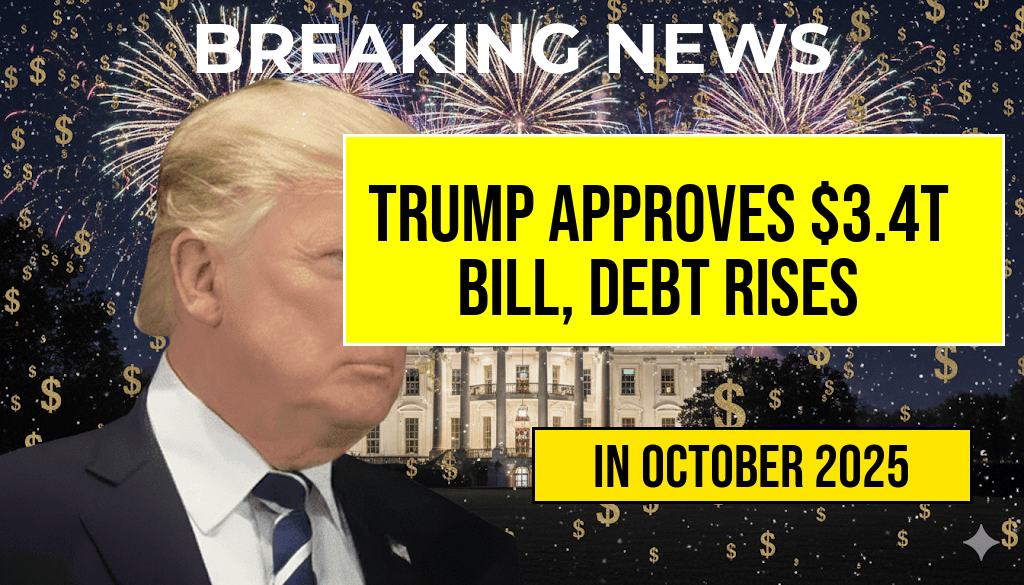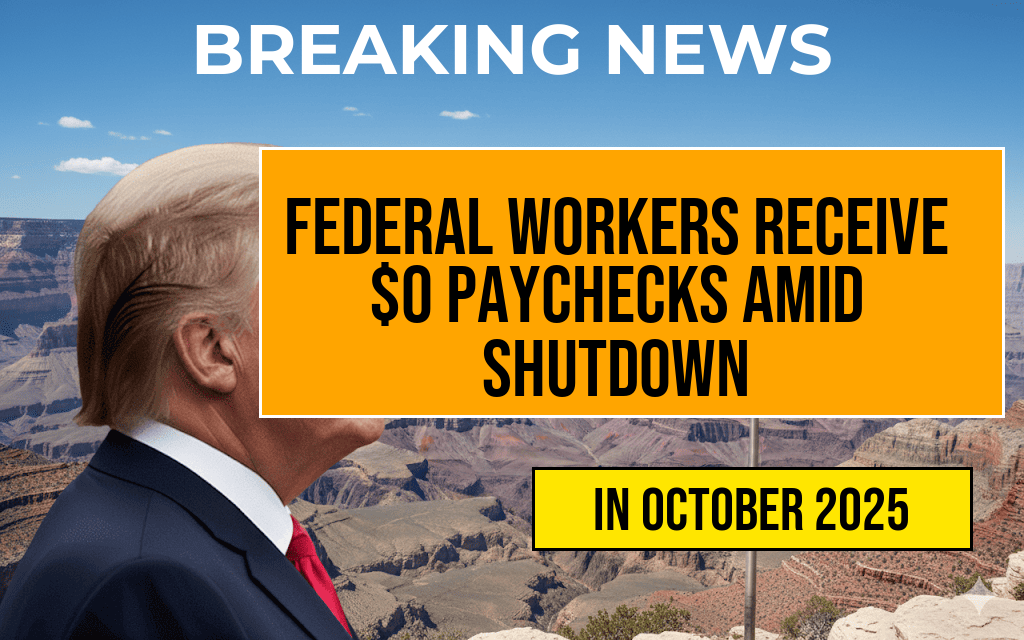In a significant move that has sparked widespread debate, President Donald Trump has approved a $3.4 trillion mega-bill, which is projected to increase the national debt by an additional $4 trillion. This monumental legislation comes with a provision that maintains the current tax exemption on tips, a decision that has drawn both praise and criticism from various sectors. The bill aims to address multiple facets of the economy, including infrastructure, healthcare, and education, while also providing financial relief amid ongoing concerns about the economic impacts of the COVID-19 pandemic. With the national debt already exceeding $28 trillion, the implications of this bill are likely to reverberate through the economy for years to come.
Key Features of the Mega-Bill
- Infrastructure Investments: A significant portion of the funding will be allocated to modernizing the country’s infrastructure, including roads, bridges, and public transportation systems.
- Healthcare Initiatives: The bill proposes increased funding for healthcare services, particularly in underserved communities, aiming to improve access and affordability.
- Education Funding: Additional resources are designated for public education, focusing on enhancing K-12 programs and making college more affordable.
- Tax Provisions: The decision to keep tips exempt from taxation is positioned as a way to support workers in the service industry, who have been among the hardest hit during the pandemic.
Economic Implications
The approval of this mega-bill is expected to have far-reaching economic implications. Proponents argue that the investment in infrastructure and education will create jobs and stimulate economic growth. The emphasis on healthcare funding is also seen as crucial, particularly as the nation continues to navigate the complexities of the pandemic. However, critics are concerned about the substantial increase in the national debt. Some economists warn that such a massive infusion of spending without corresponding revenue could lead to long-term economic challenges, including inflation and increased interest rates.
Public Reaction
The public response to the bill has been mixed. Supporters, including many in the construction and education sectors, hail the legislation as a necessary step towards economic recovery. They argue that investing in infrastructure will not only create jobs but also improve the quality of life for millions of Americans. Conversely, fiscal conservatives have voiced their opposition, emphasizing the potential risks associated with increasing the national debt without a clear plan for repayment.
Political Landscape
The passage of the mega-bill comes at a time of heightened political tension as the nation approaches the upcoming elections. Lawmakers from both parties are weighing the benefits of the bill against their constituents’ concerns about fiscal responsibility. Some Democratic leaders have expressed support for the bill, arguing that the long-term benefits will outweigh the immediate costs. Meanwhile, Republican opposition has centered around the need for reduced government spending and a balanced budget.
Long-Term Forecast
As the nation moves forward, economic analysts will closely monitor the effects of this legislation. The expectation is that the mega-bill will create a short-term boost in economic activity, but its long-term effects will depend on various factors, including global economic conditions and domestic policy decisions. The challenge for policymakers will be to balance the immediate needs of the economy with the long-term goal of fiscal sustainability.
Conclusion: A Critical Juncture
This mega-bill represents a critical juncture for the U.S. economy, as it seeks to address pressing issues while grappling with the implications of increased national debt. As the nation navigates these complex challenges, the focus will likely remain on how effectively the funds are utilized and whether they lead to meaningful economic recovery. Stakeholders across the political spectrum will be watching closely to see how this legislation unfolds in the coming months.
For more details on the bill and its implications, you can visit Forbes or check out the [Wikipedia] page on the economic impact of the COVID-19 pandemic.
Frequently Asked Questions
What is the main focus of the $3.4 trillion mega-bill approved by Trump?
The main focus of the $3.4 trillion mega-bill approved by Trump is to address various economic challenges while increasing the national debt by $4 trillion. This legislation aims to provide substantial financial support across multiple sectors.
How does the legislation impact taxes on tips?
The legislation ensures that there will be no tax imposed on tips, which is significant for industries that rely heavily on gratuities, such as hospitality and service sectors.
What are the implications of increasing the national debt by $4 trillion?
Increasing the national debt by $4 trillion raises concerns about long-term fiscal sustainability and the potential impact on future economic policies, including how it may affect taxation and government spending.
What sectors are expected to benefit from the mega-bill?
The mega-bill is designed to benefit a wide range of sectors, including infrastructure, healthcare, and education, providing much-needed funding to stimulate economic growth and recovery.
How does the approval of this bill reflect Trump’s economic policies?
The approval of this mega-bill reflects Trump’s focus on aggressive economic stimulus measures, prioritizing immediate financial relief and growth while maintaining certain tax structures, such as the exemption on tips.






